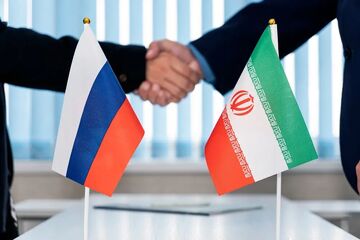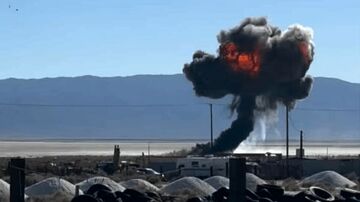TEHRAN(Bazaar) – William O. Beeman, Professor Emeritus of University of Minnesota, says if there is to be a ‘quid-pro-quo’ strategy for reviving Iran nuclear talks, there has to be a quid and a quo.
He adds: “Iran wants the sanctions lifted, but other than ratcheting uranium enrichment up or down, they don't have much to offer.”
Following is the text of the Bazaar interview with Professor William O. Beeman.
Q: In his recent statement, Qatar's foreign minister announced that the partial nuclear agreement (quid-pro-quo approach) is the best way to reach a comprehensive agreement between Iran and the United States. What is your assessment of this solution?
A: Qatar has a vested interest in improving relations between the United States and Iran, because Qatar is an ally of both nations. It has a commercial and military relationship with the United States and it is allied with Iran because the two nations share the South Pars gas field, which is essential to Qatar's economy. It is also the case that Qatar has become an essential transportation hub between Iran and the rest of the world through Qatar Airways, which has become one of the most successful airlines in the world with service to several important Iranian cities. For this reason, I applaud Qatar's interest in improving relations between the two nations. However, I also am skeptical of the Qatari foreign minister, Mohammed bin Abdulrahman bin Jassim Al-Thani's sophistication in understanding the obstacles that remain between Iran and the U.S. Mr. Al-Thani is from the ruling family of Qatar and has a personal financial interest in the economic welfare of his country. The quid-pro-quo approach that was just implemented in the release of Iranian funds from South Korea and the prisoner exchange virtually exhausted the "bargaining chips" that Iran and the United States had with each other. We speak of "carrots" and "sticks" in bargaining situations, the analogy being how you make a mule move--either bribing with a carrot, or threatening with a stick. These exchanges were carrots for both sides. The only thing that seems to remain are "sticks." The stick for the United States is the continued sanctions. The stick for Iran is continued uranium enrichment. Until more "carrots" appear, the negotiations will be stalemated. Perhaps Mr. Al-Thani has something that Qatar can offer both sides that would be persuasive. Other than that, he seems to be engaging in wishful thinking.
Q: One of the obstacles to the quid-pro-quo approach is determining the priorities of each step. Another problem is that the components of these steps are related to each other, and without having a general picture of what should be finally achieved, it is difficult to determine the priority of the steps. What is your assessment?
A: Yes, this is absolutely correct. The funds release and prisoner exchange exhausted the bargaining resources for both Iran and the United States. Now highly creative negotiators must return to the bargaining table with some inventive and creative offerings that have not been explored. The Biden administration got pilloried over the last exchange, and going into an election year in 2024 they will be extraordinarily cautious about what they concede to Iran, because anything that seems to be giving Iran the better bargain will be used against Democrats and Biden in the election. Mr. Trump, who looks to be the nominee for the Republican Party, despite his legal problems, will make Biden's relations with Iran a major campaign issue.
Q: One of the successful cases of the quid-pro-quo approach is the exchange of prisoners and the cessation of Iran's enrichment of 60%. Is this approach applicable to other fundamental differences between Iran and the United States?
A: It would be possible to apply this approach if we had a roster of things that both sides want. The United States has been living with the Iranian enrichment drama for more than 20 years now, and I firmly believe that sophisticated people in Washington have finally come to realize that this is a bit of a sham operation on Iran's part. Every time the United States does something Iran doesn’t like; Iran increases uranium enrichment. Of course, those who want to see relations with Iran regularized are not above using this kind of brinkmanship strategy on Iran's part to try to convince the American public to support negotiations going forward, but sophisticated negotiators have now accepted the position that Iran does not, has not, and will not have a nuclear weapons program, and that this political "dance" on both sides is for show.
Q: America is satisfied with the current situation based on a temporary understanding, but Iran wants the lifting of sanctions, which will be achieved through a comprehensive agreement. However, no Iranian official has yet taken a position regarding Qatar's ‘quid-pro-quo approach’. However, due to the time-consuming nature of such an approach, it seems that in the short term, Iran will not achieve its desired economic benefits. What is your assessment?
A: Once again, if there is to be a "quid-pro-quo" strategy, there has to be a quid and a quo. Iran wants the sanctions lifted, but other than ratcheting uranium enrichment up or down, they don't have much to offer. There may be more prisoners lurking in Iranian prisons, but hostage taking in order to extract concessions from the United States is not going to work again. It is truly a dysfunctional strategy which the United States is not going to honor.
Q: To what extent can the current temporary understanding between Iran and the US be sustainable?
A: Right now, the United States and Iran remain "qahr" with each other. Iranians understand what that means. It is a standoff. The two sides don't talk directly to each other. They have to use mediators like Qatar and Oman. Nothing will be resolved until and unless there is some force that compels them to communicate more effectively.















نظر شما